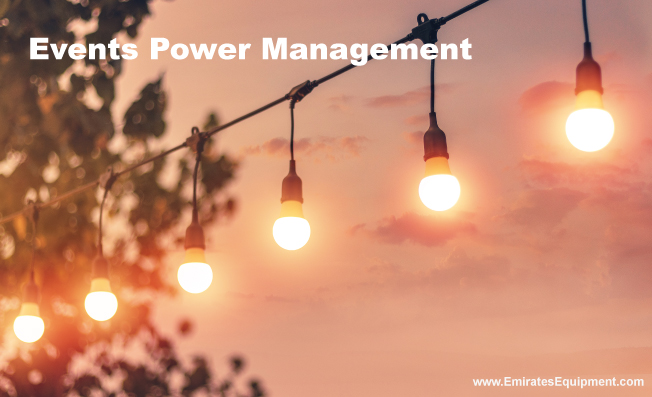Events, whether they are concerts, conferences, or festivals, require reliable power sources to function. Without proper power management, events can be disrupted or even cancelled due to power outages or other issues. Event power management is the process of planning, implementing, and monitoring power needs and usage for an event. In this article, we will discuss the importance of event power management, key considerations, and best practices for effective event power management.
Understanding Event Power Management
Event power management involves three components: power source and distribution, power monitoring and control, and backup power. The power source and distribution component includes selecting the right power source, calculating power needs, and distributing power to different areas of the event. Power monitoring and control involves monitoring power usage and making adjustments to ensure efficient usage. Finally, backup power is essential to ensure that the event can continue in case of a power outage.
The process of event power management involves planning and preparation, implementation and execution, and evaluation and adjustment. During the planning and preparation phase, event planners should conduct a site survey to determine power needs and limitations. They should also create a power plan, which includes selecting the right power source and calculating power needs. During implementation and execution, event planners should use reliable equipment, implement power redundancy, and monitor and adjust power usage as necessary. Finally, during evaluation and adjustment, event planners should conduct post-event evaluations to identify areas for improvement and make adjustments for future events.
List of most commonly required for event power management
- Generators – These are used to provide primary power to an event, especially in outdoor locations where electrical outlets may not be available.
- Power distribution units (PDUs) – These are used to distribute power from generators or electrical outlets to various locations throughout the event venue.
- Cables and wiring – These are used to connect the generators, PDUs, and other equipment to ensure that power is distributed efficiently and safely.
- Uninterruptible power supply (UPS) – These are used to provide backup power in case of a power outage or other issue.
- Cable humps – These are used to cover and protect cables and wiring, ensuring that they are not a tripping hazard for event attendees.
- Safety barriers – These are used to cordon off areas where power equipment is located, keeping event attendees safe.
- Fuel tanks – These are used to store fuel for generators and other power equipment, ensuring that power can be maintained throughout the duration of the event.
Key Considerations for Event Power Management
Several key considerations must be taken into account when planning event power management. The type of event is an essential consideration, including the size of the event, whether it is indoor or outdoor, and the type of equipment used. Understanding power needs is also critical, including calculating power requirements and choosing the right power source. Finally, safety and regulations are essential considerations, including safety considerations for power management, regulations and standards to follow, and liability and insurance.
Best Practices for Event Power Management
Effective event power management requires careful planning, implementation, and evaluation. Best practices for event power management include conducting a site survey to identify power needs and limitations, creating a power plan, and establishing communication protocols. During implementation and execution, using reliable equipment, implementing power redundancy, and monitoring and adjusting power usage are all essential practices. Finally, during evaluation and adjustment, conducting post-event evaluations and making adjustments for future events are critical to improving event power management.
Conclusion
In conclusion, event power management is a critical component of successful event planning. Effective power management ensures that events run smoothly, without any disruptions or safety concerns. Key considerations for event power management include the type of event, power needs and requirements, and safety and regulations. Best practices for event power management include careful planning, implementation, and evaluation. By prioritizing event power management, event planners can ensure that their events are a success.
Emirates Equipment is a professional event power solutions provider in Abu Dhabi, UAE, that offers a range of services to ensure that events run smoothly. We understand the importance of reliable power sources for events, which is why they offer a wide range of equipment and services to meet the unique needs of each event. Emirates Equipment provides power distribution, backup power, and power monitoring and control services to ensure that power needs are met and any issues are addressed quickly. Our team of experts works closely with event planners to identify power needs and limitations, create a power plan, and implement best practices for event power management. With their reliable equipment and expert services, Emirates Equipment provides professional event power solutions that ensure the success of any event.
